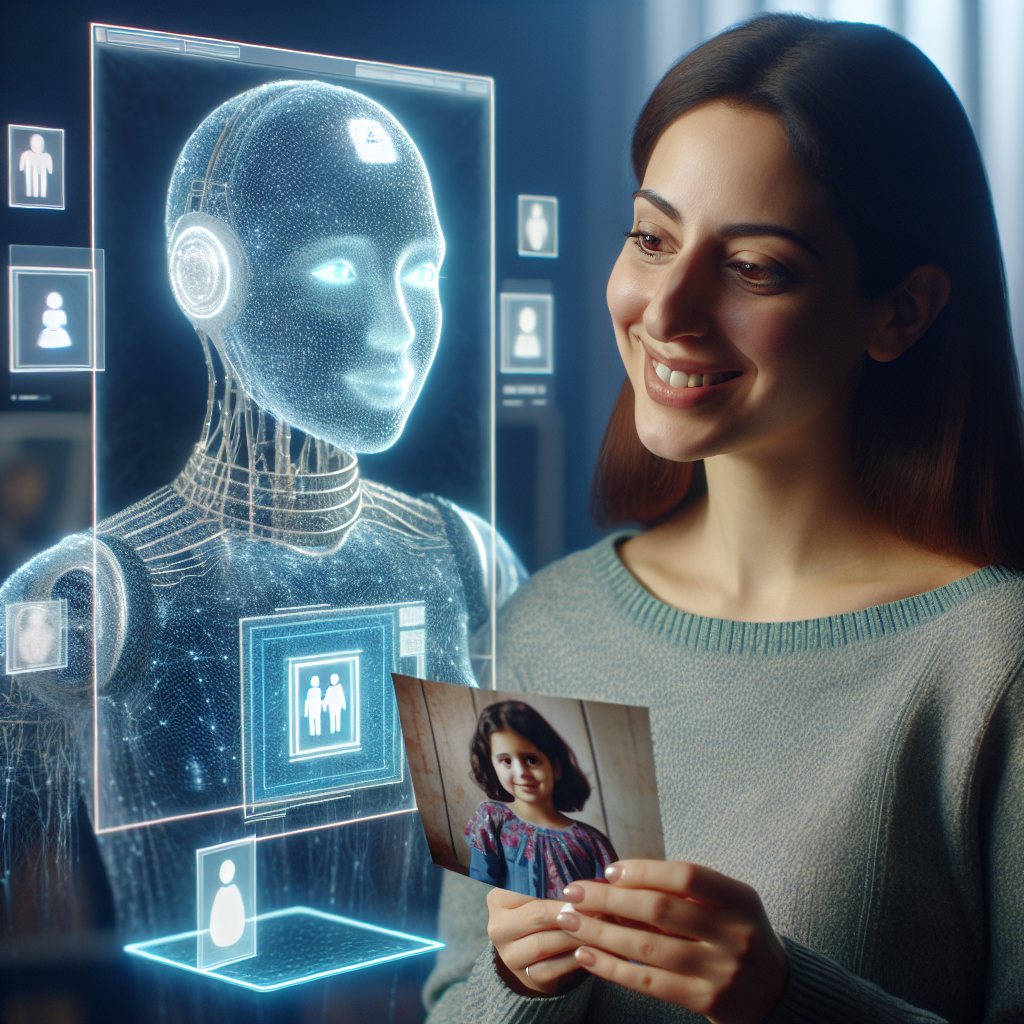AI\’s Role in Helping find Adoptive Relatives
Recent discussions have highlighted the boundless potential of AI for the future. One area where I\’ve struggled, despite our technological advancements, is finding my extended family. My family tree literally stops at my grandmother, who was adopted. Despite our progress in technology, we still have no clue who her birth parents were.
My grandmother was born on March 28, 1935, and spent her early life at St. Vincent\’s orphanage in Philadelphia before being adopted as a baby. She had a wonderful life with her adoptive parents and loved them deeply. When they asked if she wanted to know about her birth parents, she turned them down out of respect and never asked again. Her adoptive parents mentioned she came from a prominent family, and there was a complicated story behind her adoption, but she still refused to inquire further.
I understand her decision—she may have worried that her birth parents were not good people. Although my grandmother passed away a few years ago, the questions about our family\’s origins remain with us. I\’m excited to see how AI might help in finding adoptive relatives, providing answers to the mysteries of our family history.
Now let’s fast forward. Although my grandmother didn\’t want to find out who her birth parents were, I certainly do. My family has been plagued with various conditions, and many seem to die young. As a curious person, I want to understand the history of my family. I\’m missing an entire lineage and backstory of who I am.
I tried to get information from the orphanage, but they couldn\’t provide details from files going that far back. I\’ve used all the DNA testing kits available, matching with people worldwide, but nothing significant has come up. I even googled birth records and headlines from Philadelphia during that time, but I came up short.
To make a long story short, I was considering putting this search on the back burner, hoping that one day AI could help me find my missing family. You might be thinking, Wow, this is insane! I understand the skepticism, but this is why I believe it could be possible in the future.
With the power of AI, leveraging vast amounts of data and advanced algorithms to facilitate the search process, enables faster computation of facial recognition and DNA files. In this post, we will explore how AI can be a valuable tool in reuniting individuals with their adoptive families.

Utilizing Data Mining Techniques
AI-powered systems can analyze extensive databases, including public records, social media platforms, and genealogy websites, to gather information about potential relatives. By employing data mining techniques, AI can sift through vast amounts of data quickly and efficiently, significantly reducing the time and effort required for manual searches.
Natural Language Processing (NLP) for Contextual Understanding
AI models equipped with Natural Language Processing capabilities can understand and interpret complex queries related to adoption. By analyzing the context and intent behind the user\’s questions, AI can provide relevant and accurate responses, guiding individuals in their search for adoptive relatives. Basically, AI is a genius tool.
Facial Recognition Technology
AI-driven facial recognition technology has made significant strides in recent years. By comparing facial features and patterns, AI algorithms can identify potential matches between individuals and their adoptive relatives. This technology has proven particularly useful in cases where individuals have limited information about their biological families.

Collaborative Platforms and Support Communities
AI-powered platforms can facilitate collaboration among individuals searching for their adoptive relatives. These platforms can connect users with similar adoption stories, allowing them to share information, experiences, and resources. AI can also provide emotional support by offering empathetic responses and connecting users with relevant support communities.
Privacy and Ethical Considerations with AI Helping Find Relatives
While AI can be a powerful tool in finding adoptive relatives, it is crucial to address privacy and ethical concerns. AI systems must adhere to strict data protection regulations and ensure the confidentiality of personal information. Additionally, it is essential to approach the search process with sensitivity, respecting the privacy and consent of all parties involved.
By leveraging data mining techniques, natural language processing (NLP), facial recognition technology, and collaborative platforms, AI can provide valuable assistance in reuniting individuals with their adoptive families. With responsible implementation, AI can be a crucial tool in bringing families together and providing closure to those seeking their biological relatives.
I truly hope that one day, I can see a face and finally have an answer to how my life on Earth began. I want to know who I resemble, who I might act like, and who I have things in common with. It might sound like a movie, but I\’m a real person who doesn\’t know where my family came from. Without the help of AI, I may never find out.
